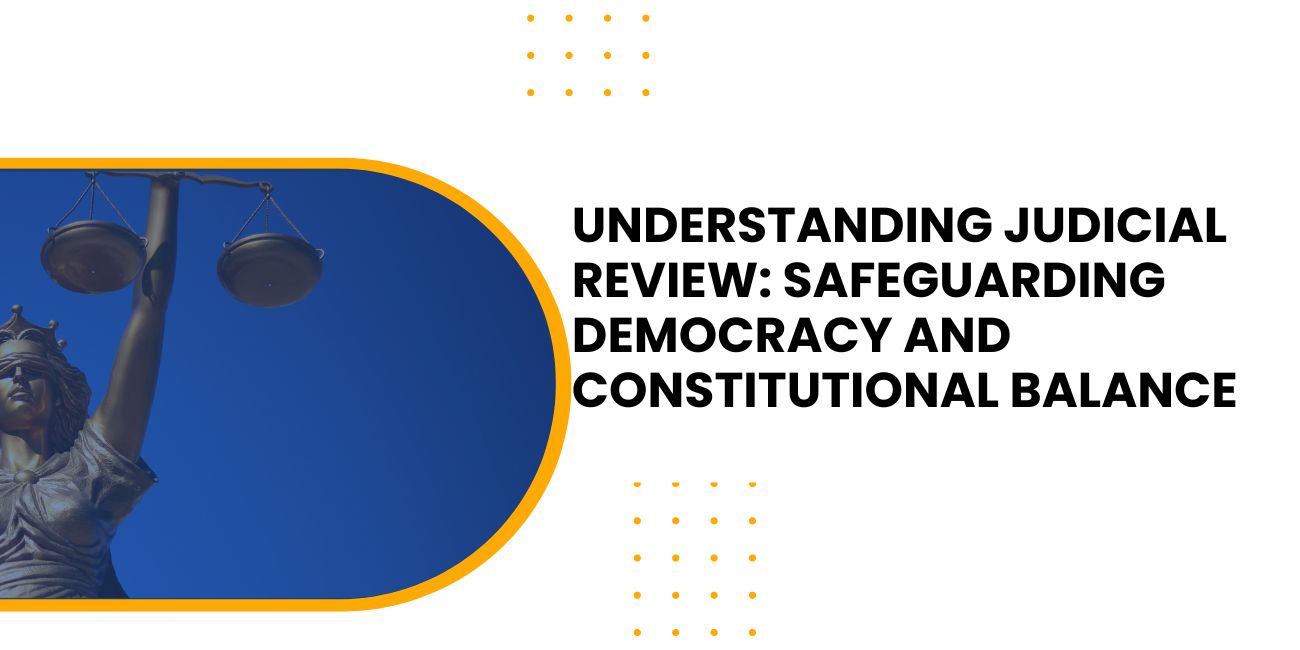Understanding Judicial Review: Safeguarding Democracy and Constitutional Balance

In the intricate framework of a democratic society, the principle of checks and balances plays a vital role in ensuring the fair and lawful exercise of governmental power. One of the cornerstones of this system is judicial review, a mechanism that empowers courts to assess the legality and constitutionality of legislative and executive actions. By subjecting government decisions to judicial scrutiny, judicial review acts as a safeguard against potential abuse of power and reinforces the rule of law.
Defining Judicial Review:
At its core, judicial review involves the examination of laws, regulations, policies, and actions of the government to determine if they align with the constitution. If a court finds that a particular government action contradicts the constitution or violates established legal principles, it has the authority to nullify or invalidate that action. This process ensures that governmental bodies operate within their defined legal boundaries and prevents any one branch from becoming excessively dominant.
Preserving Constitutional Supremacy:
In countries with a written constitution, such as the India, judicial review helps maintain the supremacy of the constitution. The constitution serves as the foundational law upon which all other laws are based. By allowing courts to strike down laws that conflict with the constitution, judicial review safeguards the core values and principles enshrined within it. This prevents the erosion of individual rights and democratic norms, even in the face of changing political landscapes.
Balancing Power:
Judicial review plays a crucial role in maintaining the equilibrium of power among the three branches of government: the legislative, the executive, and the judiciary. It ensures that no single branch can infringe upon the authority of the others or overstep its legal limits. By holding each branch accountable, judicial review upholds the principle of separation of powers, which is fundamental to preventing tyranny and preserving the democratic character of a nation.
Challenges and Controversies:
Despite its significant role in preserving democratic values, judicial review is not without controversy. Critics argue that unelected judges should not wield the power to overturn decisions made by elected representatives. This tension between the judiciary’s authority and democratic legitimacy raises questions about the proper scope and limits of judicial review.
Global Variations:
The practice of judicial review varies across different legal systems and countries. In some nations, courts have the authority to engage in broad and comprehensive reviews of governmental actions, while in others, their powers are more restricted. Additionally, some countries vest the authority of judicial review in specialized constitutional courts, while others assign it to the regular court system.
Conclusion:
Judicial review stands as a pillar of democratic governance, upholding the rule of law, protecting individual rights, and ensuring that governmental powers remain in check. It contributes to the stability of constitutional democracies by fostering a system in which no single branch can wield unchecked authority. While the debate over the proper extent of judicial review persists, its role in safeguarding democracy remains indispensable, as it helps strike a balance between the powers of government and the rights of the citizens it serves.
If you want to be a judicial officer and are looking for RJS coaching in Jaipur, here, at Jyoti Judiciary we provide comprehensive study material to make your preparation solidified and top-notch. From preliminary mock tests to mains answer writing sessions every material required for clearing the exam is provided. We have separate legal current affairs classes, legal general knowledge, and current affairs classes all in one-time enrolment. Hurry up.









